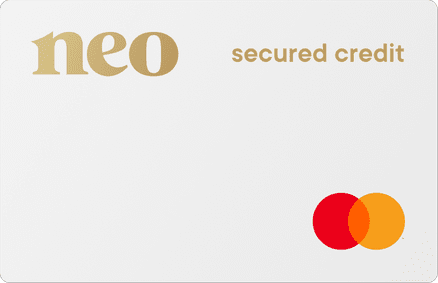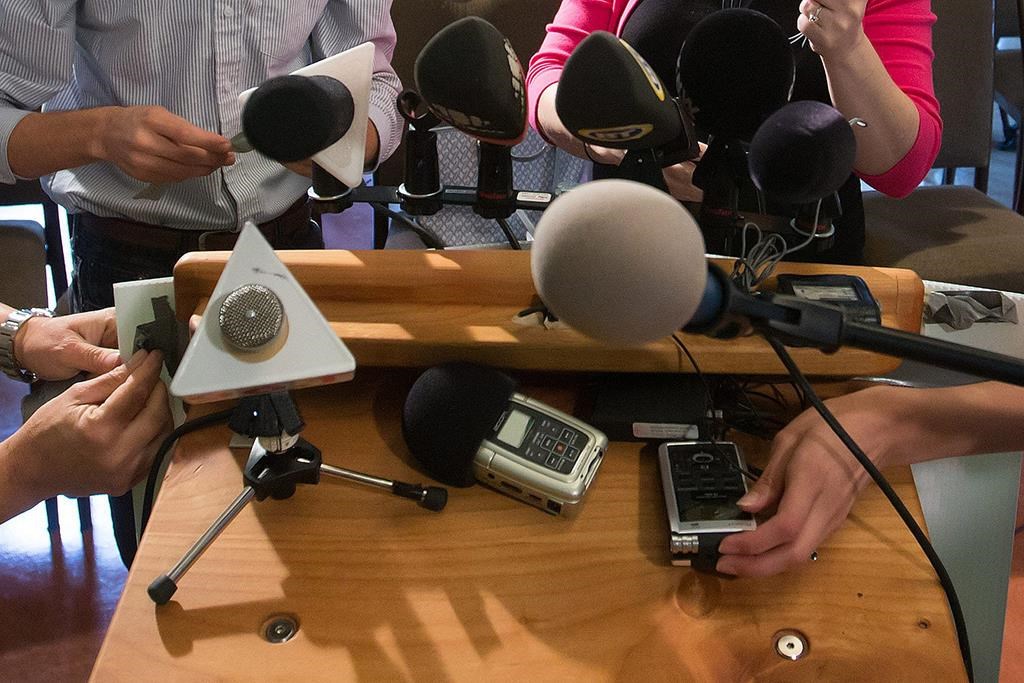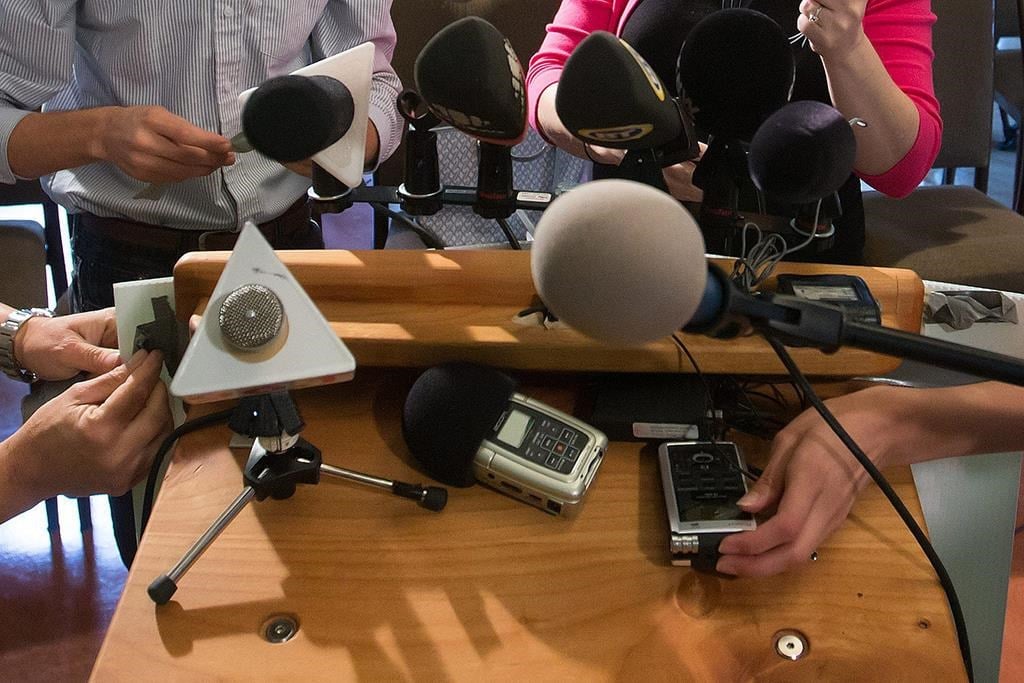Best secured credit cards in Canada
Fact Checked: Amy Tokic
Updated: March 25, 2024
If you're new to Canada, rebounding from bankruptcy, or eager to rebuild your credit, secured credit cards are the gateway to financial independence. Below, you’ll find the best secured credit cards in Canada, and even further down, we'll help you compare key features like interest rates, security deposits and additional perks.
Discover the card that aligns perfectly with your journey towards a stronger credit future and learn everything you need to know to make an informed decision.
Best secured credit card
Neo Secured credit card
15% Up to 15% on first new purchases with Neo partners
5% With Neo Partners
1%-3% on gas and groceries
3%-4% Streaming, ridesharing, and food delivery services
2%-3% With retail partners
0.5% On everything else
$0 Annual Fee Option to pay $4.99/month for premium membership to unlock higher cash back rewards
19.99% - 26.99% Variable APR
24.99% - 28.99% Cash Advance APR Plus a $2.50 fee in Canada, $5 fee anywhere else
Poor Recommended Credit Score
$0 Required Annual Personal Income
$0 Required Annual Household Income
$50 Min Security Deposit
Pros
-
No annual fee
-
Low minimum security deposit
-
Cash back rewards on purchases
-
Instant approval regardless of credit score
Cons
-
Only reports to TransUnion
-
High APR range
Home Trust Secured Visa Card
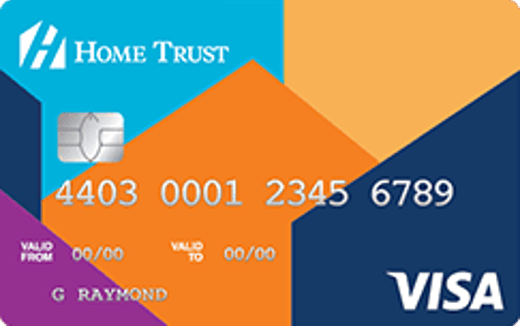
- Annual fee: $0
- Interest rate: 19.99%
- Minimum/maximum deposit: Set your own credit limit between $500 and $10,000
Eligibility criteria: A credit score in the 300 to 579 range.
Upgrade path: You can upgrade to the annual fee version to reduce your interest rate to 14.90%.
Extra info: Your application could be declined due to factors like insufficient income or a history of missed payments, but generally, Home Trust has a high approval rate.
Pros and cons
Pros
-
Reports to both Equifax and TransUnion, aiding in credit building.
-
High approval rate, even for those with poor credit or recovering from bankruptcy.
-
Lower foreign transaction fee of 2%.
Cons
-
No rewards or significant perks.
-
A monthly inactivity fee of $12 if the card is not used for 12 months.
Capital One Guaranteed Secured Mastercard
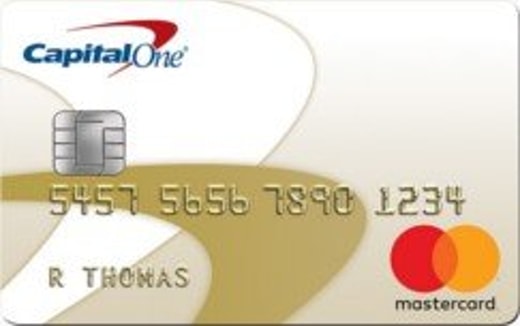
- Annual fee: $59
- Interest rate: 19.8% on purchases, cash advances and balance transfers.
- Minimum/maximum deposit: Security deposit of either $75 or $300 is required.
- Credit limit: Starts at $300 or more, depending on the application details.
Eligibility criteria: No minimum annual income required, but applicants cannot have a current Capital One account, must not have applied for a Capital One card in the last 30 days and not have had a Capital One account in good standing within the last year.
Upgrade path: Not explicitly mentioned, though there is the Capital One Low Rate Guaranteed and Capital One Guaranteed card that may not require a security deposit.
Pros and cons
Pros
-
Guaranteed approval: Ideal for individuals with bad credit history, as approval is almost certain.
-
Credit building: Reports to both credit bureaus, aiding in credit score improvement.
-
Security deposit refund: Deposit is fully returned upon closing the account and paying off the balance.
Cons
-
Annual fee: Higher than some other secured cards at $59.
-
Limited credit limit increase: The initial credit limit is relatively low and you might have to show good habits over a longer period of time.
-
No rewards or perks: Lacks cash back or points rewards.
Read more: What is a secured credit card?
13 factors to consider when choosing a secured credit card in Canada
- 1. Deposit requirement: Look for a card with a deposit that fits your budget. Some cards require as little as $50, while others may ask for several hundred dollars. The deposit will typically be your max credit limit.
- 2. Interest rates: Compare the interest rates for purchases and cash advances. Lower rates are preferable, especially if you might carry a balance.
- 3. Annual fees: Some secured cards charge annual fees. Decide if a fee is worth it for you, considering any additional benefits the card may offer (lower interest rate, rewards, etc).
- 4. Credit bureau reporting: Ensure the card reports to major credit bureaus in Canada, like Equifax and TransUnion—crucial for building your credit history. If the card only reports to one, it may affect your overall credit building because some lenders will look at one bureau and not the other.
- 5. Additional benefits: Look for cards offering perks like cash back, insurance coverage, or low foreign transaction fees. These extras can add value to your card. Ask yourself what will benefit you the most.
- 6. Eligibility requirements: Check if there are specific eligibility criteria, such as income requirements, citizenship, or restrictions related to bankruptcy history.
- 7. Brand recognition: Opt for cards from recognized brands like VISA, Mastercard, or American Express for wider acceptance and reliability.
- 8. Minimum and maximum security deposit requirements: Understand the minimum and maximum limits for the security deposit. This flexibility should align with your credit building goals.
- 9. Graduation path to an unsecured card: Ask if the card offers a transition to an unsecured card with responsible usage. It’s a significant milestone in credit building.
- 10. Foreign transaction (FX) fees: Worth considering if you plan to use the card abroad or for international purchases.
- 11. Application process: Some cards may offer instant approval, while others might take longer. Don’t apply to multiple cards at the same time as this could hurt your chances of acceptance (and your credit score).
- 12. User reviews: Check user reviews, especially on platforms like Reddit, to gauge real-world experiences.
- 13. Opportunities to increase your credit limit: Find out if there are options to increase your credit limit over time, which is helpful for your credit utilization ratio and ultimately your credit score.
How to apply for a secured credit card in 8 steps
Applying for a secured credit card in Canada typically involves the following steps:
- 1. Research and compare: Start by researching different secured credit cards. We’ve listed the best ones above, many banks don’t currently offer secured cards (see more below). Compare their features, fees, interest rates and benefits. Use online resources, user reviews and sites such as money.ca to gather information.
- 2. Check eligibility: Ensure you meet the eligibility criteria for the card you're interested in. This usually includes being the age of majority in your province, having a Canadian address and sometimes specific income or employment requirements.
- 3. Gather necessary documents: You’ll need proof of identity (like a driver's license or passport), proof of address (like a utility bill) and financial information (like bank statements or pay stubs).
- 4. Fill out the application: Apply online (just click on the apply buttons above), or by phone, or in-person at a bank branch, depending on the issuer's process. Fill in all required information accurately to avoid delays.
- 5. Submit deposit: If approved, you'll need to provide the security deposit, which sets your credit limit. This can usually be done via a bank transfer or a cheque.
- 6. Wait for approval: After submitting your application and deposit, there will be a processing period. The time frame varies by issuer but is generally quick.
- 7. Activate your card: Once you’re approved and you receive your card by mail, follow the issuer’s instructions to activate it. This might involve calling a number or activating it online.
- 8. Start using the card: Begin using your card for purchases and make sure to pay your bills on time to start building your credit. You can use it for monthly subscriptions like streaming services and online purchases, too.
Remember, each credit card issuer may have slightly different processes and requirements, so it's important to read the specific instructions provided by the issuer of the card you choose.
12 tips when using a secured credit card
- 1. Pay on time: Always pay your credit card bill on time. Late payments can negatively impact your credit score (yes, even if it is your money).
- 2. Keep your balance low: Maintain a low balance relative to your credit limit. Aim for a credit utilization ratio under 30% to positively affect your credit score. For example, if your limit is $1,000, try not to carry more than $300 (30%).
- 3. Pay in full when possible: Try to pay off your entire balance each month to avoid interest charges and reduce the risk of debt accumulation.
- 4. Use the card regularly: Regular activity is important. Use the card for small, manageable purchases to ensure that the card issuer reports positive activity to the credit bureaus. We recommend subscription services like Netflix, Amazon, Spotify, or anything that charges a small amount that’s easy to pay off.
- 5. Monitor your credit score: Regularly check your credit score to track your progress and understand the impact of your credit habits. You can do this for free with Equifax and TransUnion, or even your bank.
- 6. Budget wisely: Plan your expenses and stick to a budget to avoid overspending with your secured card.
- 7. Avoid additional cards: Stick to one secured card while you're building credit. Managing multiple cards (or other users of your cards) can be challenging and may lead to high debt levels.
- 8. Understand terms and fees: Be fully aware of all the terms, fees and interest rates associated with your card to avoid costly mistakes.
- 9. Graduate to an unsecured card: After 12 months of responsible use, explore options to upgrade to an unsecured card—a positive step in your credit building journey.
- 10. Don’t close the card prematurely: If there are no fees for inactivity, keep your secured card open even after you get an unsecured card because closing it can shorten your credit history and potentially lower your credit score.
- 11. Avoid cash advances: Steer clear of cash advances due to their high fees and interest rates. They can quickly lead to expensive debt.
- 12. Seek financial advice if needed: If you're unsure about managing credit or debt, don't hesitate to consult with a financial advisor for personalized guidance.
By following these tips, you can use your secured credit card as an effective tool to build a strong credit history and lay the foundation for a healthy financial future.
How to build credit with a secured credit card
A secured credit card can help you start building a credit history (if you don’t have one) or improve your credit score (if you have bad credit). Unlike a prepaid card, the activity on your secured credit card will be included in your credit report. A prepaid card doesn’t extend credit, so your account activity won’t be reported to credit bureaus—and therefore won’t help you build a credit history.
Ideally, your card should report to both major credit bureaus in Canada, including Equifax and TransUnion. Some cards may only report to one, or to neither, which won’t help you build your credit—so keep that in mind when researching your options.
But it’s a double-edged sword: If you miss payments, that will also be reported to the credit bureaus. And, since secured credit cards tend to come with lower limits, it’s easier to increase your credit utilization, which in turn could be bad for your credit score.
The key to building better credit is simple: Use your card responsibly. Pay your bills on time, try to pay off your balance in full or, at the very least, carry as low a balance as possible. If you’re able to maintain a positive payment history, your lender may increase your limit over time or offer to upgrade you to an unsecured card—and, in the process, give you your deposit back.
Summary: 3 best secured credit cards in Canada
| Features | Neo Secured Credit Card | Home Trust Secured Visa Card | Capital One Guaranteed Secured Mastercard |
|---|---|---|---|
| Annual fee | $0/$59 | $0 | $59 |
| Interest rate | 19.99%-29.99% | 19.99% | 19.80% |
| Minimum deposit | $50 | $500 | $75-$300 (they decide) |
| Maximum deposit | $10,000 | $10,000 | Not specified, but $1,000 is in their conditions |
| Pros |
Cashback rewards
Low minimum deposit Reports to credit bureau (TransUnion) Graduation path |
No annual fee option
Reports to credit bureaus Visa benefits Graduation path |
Guaranteed approval
Reports to credit bureaus MasterCard benefits Security deposit refund |
| Cons |
Annual fee
Limited acceptance |
High interest rate
Limited benefits Monthly inactivity fee |
Annual fee
Limited credit limit increase No rewards |
| Eligibility criteria |
Canadian resident
Age of majority Not in bankruptcy |
Canadian resident
Age of majority Not in bankruptcy |
Canadian resident
Age of majority Not in bankruptcy |
| Upgrade path | Yes | Yes | Not specified, but Capital One offers 5 other credit cards |
| Read review | Neo Secured Credit Card review | Home Trust Secured Visa Card review | Capital One Guaranteed Secured Mastercard review |
| Apply | Get started | Get started | Get started |
Secured credit card FAQs
Disclaimer
The content provided on Money.ca is information to help users become financially literate. It is neither tax nor legal advice, is not intended to be relied upon as a forecast, research or investment advice, and is not a recommendation, offer or solicitation to buy or sell any securities or to adopt any investment strategy. Tax, investment and all other decisions should be made, as appropriate, only with guidance from a qualified professional. We make no representation or warranty of any kind, either express or implied, with respect to the data provided, the timeliness thereof, the results to be obtained by the use thereof or any other matter.
